 Stephen Geller Katz LCSW-R
Stephen Geller Katz LCSW-R
Misophonia Cognitive Retraining Therapy
 Stephen Geller Katz LCSW-R
Stephen Geller Katz LCSW-RMisophonia Cognitive Retraining Therapy
Misophonia Cognitive Retraining Therapy, as featured on the MTV True Life episode: “I Have Misophonia” premiering Friday, December 16th, 7:00 PM EST. See Clip >
|
|
|
| Moderate to severe anxiety triggered by chewing sounds, including: | ||
|
|
|
You may also be affected by visual stimuli, such as repetitive foot or body movements, fidgeting or movement you observe out of the corners of their eyes. Intense anxiety, rage and avoidant behavior may develop as a result of misophonia.
 * Do you feel your family and friends don’t understand how much you suffer?
* Do you feel your family and friends don’t understand how much you suffer?
* Do you often feel you can just suffer through a social event where there is eating present only to find that you must “escape” before you have a panic attack?
* Do you find that some people are at first understanding and make some efforts not to make the triggering sounds in front of you, but soon forget and constantly have to be reminded, causing you to feel angry, anxious and depressed?
* Are you avoiding social activities that you enjoy because of the misophonia?
* Are you fearful of losing your job and/or is the misophonia effecting your job performance?
You may be a candidate for Misophonia Cognitive Retraining Therapy, or MCRT.
Stephen Geller Katz, LCSW-R, with over 20 years of clinical experience, a New York University graduate, developed Misophonia Cognitive Retraining Therapy and founded Misophonia Cognitive Center™ in response to the growing number of people with Misophonia coming to his private practice from audiologists and ENTs. He discovered that by helping people to retrain and reinterpret the thoughts around their Misophonia, anxiety and depression symptoms began to improve. But even more important so did the Misophonic trigger response.
Misophonia, characterized by extreme emotional reactions to specific sounds, often goes hand in hand with anxiety. The distress triggered by sounds like chewing or tapping can lead to increased anxiety levels, creating a challenging cycle for those affected. In this blog, we’ll delve into the connection between misophonia and anxiety and explore treatment options to address both conditions effectively.

Misophonia can be a source of significant anxiety for individuals who experience it. The mere anticipation of encountering trigger sounds can lead to heightened anxiety levels. When exposed to these sounds, individuals may feel a surge of anxiety, which can manifest as racing thoughts, increased heart rate, and a sense of impending panic.
Furthermore, misophonia-related anxiety can lead to avoidance behaviors. People may go to great lengths to avoid situations, places, or people that may trigger their misophonia symptoms. This avoidance can restrict their daily activities and social interactions, further contributing to anxiety and isolation.
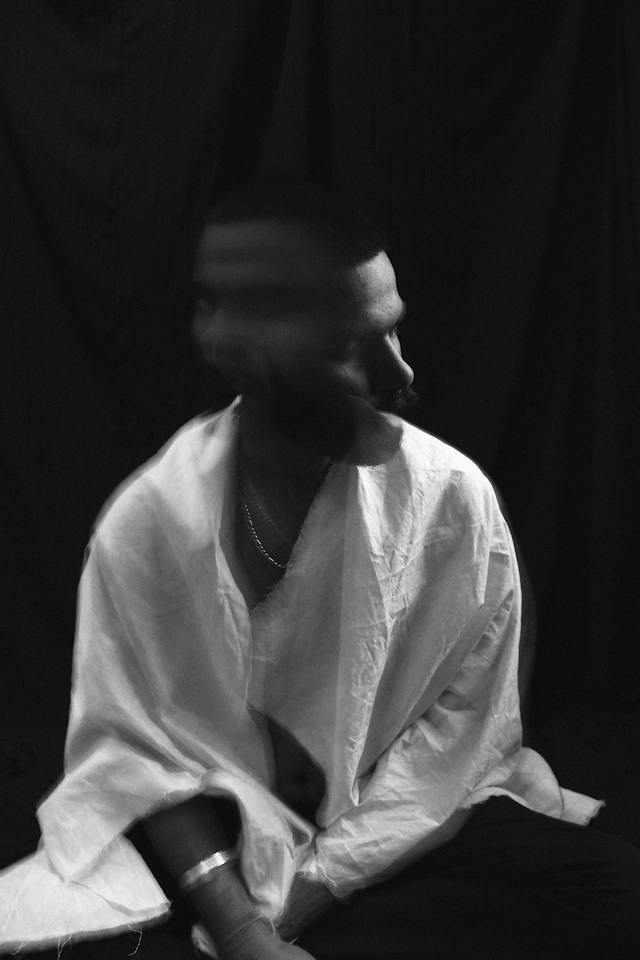 Addressing both misophonia and anxiety is essential for improving overall well-being. Here are some treatment options to consider:
Addressing both misophonia and anxiety is essential for improving overall well-being. Here are some treatment options to consider:
CBT is an evidence-based approach that can be effective for both misophonia and anxiety. CBT helps individuals recognize and reframe negative thought patterns and develop coping strategies to manage emotional reactions. It can also target avoidance behaviors and gradually expose individuals to trigger sounds in a controlled manner.
ERP is a therapeutic technique that involves controlled exposure to trigger sounds while preventing the typical emotional or behavioral response. Over time, this exposure can reduce the intensity of the emotional reaction and anxiety associated with trigger sounds.
Mindfulness meditation and relaxation techniques can help individuals manage anxiety and emotional responses to trigger sounds. These practices promote a calm and centered state of mind, making it easier to cope with misophonia triggers.
In some cases, medication may be prescribed to manage anxiety symptoms. However, medication is typically used in conjunction with psychotherapy and should be carefully evaluated by a healthcare professional.
When addressing misophonia and anxiety, it’s essential to seek the guidance of a specialized therapist or treatment center. Stephen Geller Katz, a licensed clinical social worker and founder of the Misophonia Cognitive Center™, specializes in the treatment of misophonia and its associated conditions.
If you or someone you know is struggling with misophonia and anxiety, reach out to Stephen Geller Katz at the Misophonia Cognitive Center™. Dr. Katz offers online sessions and speaks five languages, ensuring accessibility to effective treatment. Don’t let misophonia and anxiety control your life—take the first step toward a healthier and happier future.
MISOPHONIA COGNITIVE CENTER™
Stephen Geller Katz LCSW-R
19 West 34th Street
Penthouse Floor
New York, NY 10001
646-585-2251
Is there a connection between misophonia and anxiety? Misophonia is a condition that causes a strong emotional response to certain sounds, known as trigger sounds. This response can lead to feelings of anger, disgust, and anxiety, which can significantly impact daily life. It is not uncommon for those with misophonia to also struggle with anxiety, as the emotional response to trigger sounds can be overwhelming. In this blog post, we will explore the connection between misophonia and anxiety, and provide tips for coping with these conditions.

Misophonia and anxiety are closely linked, as the emotional response to trigger sounds can lead to feelings of anxiety and stress. When an individual with misophonia hears a trigger sound, their body reacts as if it is in danger, triggering the body’s stress response. This response can lead to physical symptoms such as sweating, increased heart rate, and muscle tension, as well as psychological symptoms such as fear and anxiety.
The constant stress and anxiety caused by misophonia can lead to various mental health issues, such as generalized anxiety disorder, panic disorder, and depression. Additionally, the avoidance of trigger sounds can lead to social isolation, which can also contribute to feelings of anxiety and depression.
While there is no cure for misophonia or anxiety, there are several tips and strategies that individuals can use to cope with their symptoms.
If misophonia and anxiety are impacting your daily life, it may be helpful to seek professional help from a licensed therapist. Cognitive Retraining Therapy (CRT) is a highly effective treatment for misophonia that can help individuals change their emotional responses to trigger sounds. Additionally, therapy can help individuals develop coping strategies for anxiety and other mental health issues.
Mindfulness is a practice that involves focusing on the present moment and accepting one’s thoughts and feelings without judgment. This practice can help individuals with misophonia and anxiety learn to observe their emotional responses to trigger sounds without reacting to them. Mindfulness techniques, such as deep breathing and meditation, can also help individuals manage stress and anxiety.

Noise-canceling headphones can be a helpful tool for individuals with misophonia, as they can help reduce the impact of trigger sounds. Using noise-canceling headphones can also help individuals feel more comfortable in social situations, where trigger sounds may be more prevalent.
Self-care is essential for individuals with misophonia and anxiety. Taking care of oneself physically, emotionally, and mentally can help reduce stress and anxiety. Self-care activities may include exercise, spending time with loved ones, engaging in hobbies, and getting enough sleep.
Misophonia and anxiety can significantly impact an individual’s daily life, but there are several strategies and tips that can help individuals manage their symptoms effectively. At the MISOPHONIA COGNITIVE CENTER™, Stephen Geller Katz LCSW-R offers online CRT sessions for individuals struggling with misophonia and anxiety. Contact us today at 646-585-2251 to learn more about our services and schedule an appointment with Dr. Katz.
Remember, seeking professional help and practicing self-care can make a significant difference in managing misophonia and anxiety. Don’t hesitate to reach out for support and take control of your mental health.
Anxiety is usually a by-product that occurs when you come across a distressful situation. Majority of scientists that sternly believe on the phenomena of evolution agree to hypotheses made by evolutionary biologists that anxiety is an inherited trait in humans that is important for survival. According to them, the first ever cousins of the human species used anxiety to their advantage, by fleeing from pray and avoiding dangerous outcomes.
Anxiety is a response that has played a critical role in the survival of Homo Sapiens(humans), however, statistics show that with the beginning of the modern information age there has been a sudden rise in anxiety disorders amongst the general population. Anxiety is a fight or flight response that be triggered by countless phenomenon, considering the complexities of human psychology.
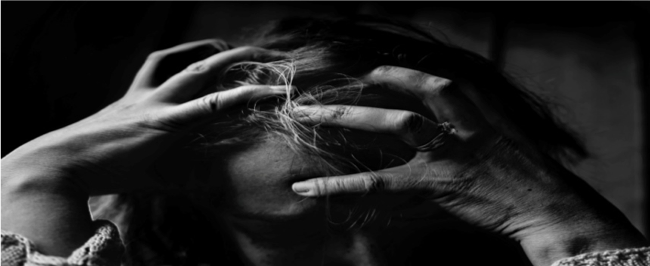
Sensitivity to noise and its response in the form of anxiety’ points to a condition that many medical professionals still cannot classify to this day. It is called Misophonia, wherein “Miso” means hate and “phonia” means sound. Misophonia does not necessarily mean hating sound but instead it is more like hating certain and specific sounds so the more appropriate way of describing it would be by calling it a selective sound sensitivity syndrome. The term ‘misophonia’ is more popularly used.
The sounds that a person suffering from misophonia can be sensitive to and the intensity of emotional response caused by it vary from person to person. Loud chewing is an example of a sound that can be annoying for a person with misophonia. Chewing noises are the most common sounds that trigger an emotional response in people who have sensitivity to selective sounds.
Noises that can derail emotional stability can be the sound of heavy breathing, which is the second most common trigger for people with misophonia. If you have a problem with people who breathe too loudly, then you also could have a minor condition of misophonia. Other noises include feet stomping, pen clicking, keyboard tapping, window wiping, and finger snapping. Familiarity between all these sounds is the repetitive motion in which they occur. This explains why a subtle or loud noise that occurs repetitively triggers a misophonic person.
If we are to compare this condition with any other condition, the ones that come closest are ASMR and Hyperacusis. ASMR is a sort of audio stimulation, it also invokes an emotional and physiological response to any audio, which most people describe as a pleasant experience. In contrast, Misophonia is also a physiological and emotional response to sound, but it is not a very enjoyable experience. Instead, it can even trigger extreme reactions from some patients.
Rage, frustration, and anxiety are the most common psychological symptoms that people with Misophonia have to suffer from. Unlike hyperacusis, which is a condition that makes people intolerant to loud music, a person suffering from Misophonia has no problem with the intensity or amplitude of sound waves but some psychological disability to tolerate certain sounds. The complexity of this disorder is beyond bounds, diagnosing it has been difficult for doctors. However, recent studies have made us understand and treat this disorder better.

(Source)
The medical science community is still discovering new information about this illness, many suggest that it is a symptom of other mental disorders. Patients with autism and obsessive compulsive disorders are more likely to show symptoms of noise sensitivity. It can also be found in people with Tourettes Syndrome. Normal patients with Misophonia were subjects of a recent study conducted by the University of Neuroscience.
The brain scans of healthy people and people with the disorder were compared and the study shows that there are differences between the brain activity of healthy people and people with noise sensitivity. This is good news for the people suffering with this abnormality as this study indicates new progress in the treatment of Misophonia. We still do not know for sure how this disorder arises and why it can be such an obstacle for some patients to overcome. Neuro-biology still has miles to cover until we can fully understand how the brain works and how the workings of the neural pathways dictate our behavior. This is why psychological disorders like these remain unclassified and for a long time untreated.
You should not take Misophonia, otherwise known as a ‘selective sound sensitivity syndrome, lightly. People need to start thinking about this disorder as a serious concern. People with severe or minor Misophonia tend not to seek treatment. This is because the disorder is still not classified as a legitimate mental illness. This is why most cases of Misophonia are left unreported.
The point of sharing all this information about this disorder is that so you can identify people who suffer on a daily from this and help them get treated. We provide extensive methods that treat Misophonia at the Misophonia Cognitive Center™.
What are the relationships between misophonia and anxiety? In simple words, misophonia is hatred towards the sound. If you find everyday sounds annoying like chewing, eating, slurping, a clock ticking, shoe tapping, then you might have misophonia. Many studies show that misophonia is a symptom of anxiety disorder. Meanwhile, other researches show that misophonia is a separate disorder itself.
There are many pieces of research done on the subject. If you have misophonia, you might confuse it with anxiety and vice versa. Preliminary research shows that misophonia and anxiety are two different disorders, but both of the disorders might interrelate with another at some point (Cavanna & Seri, 2015).
The major reason form people’s confusing is because both the disorders hit the same part of neurophysiological systems. When you feel anxious, you want to go away from the origin of the problem, and if you have misophonia, when you hear a trigger sound, you want to go away from the origin of the sound since both disorders make your respond similarly, so people confuse one another.
If you want to spot a difference between anxiety and misophonia, it is very easy. If you only get triggered by external visual and phonic cues, in that case, you have misophonia. It is very different from having anxiety. When you have anxiety, usually an internal stimulus is the trigger. It will get you anxious. Nevertheless, if you have severe misophonia, even thinking about the trigger sound will get you anxious.
When you talk about misophonia, the severe reactivity goes away as soon as you go away from the stimuli. For example, when you hear the sound of someone tapping shoes, you go away from the place, you immediately feel relaxed. This will happen to you when you have misophonia because the external stimuli were triggering you.
Meanwhile, if you are suffering from anxiety, the simple thought of having the next day will keep you thinking. A job interview will get you anxious. You might be thinking of the future, and it will get you anxious. You will notice, anxiety will be most likely to have an internal stimulus than external.
But if you are going through an anxiety attack, a misophonic stimulus might make it worse for you. Your nervous system is on an alert mood when you are thinking about something proactively since your system is on an alert mode, a misophonic stimulus will sound more intense than usual, and your anxiety will escalate and with added intensity. If you have anxiety and misophonia, then you might react to a misophonic stimulus more intensely than other misophonia sufferers.
The first step for misophonia maintenance is to know what sounds trigger you the most. You should also know about the disorder. You need to understand how the sounds affect your nervous system. When you learn about the disorder, you become a little less overwhelmed when you hear the trigger sound.
There are different ways by which you can manage your reaction towards the trigger sounds:
Once you differentiate between both reactions, it will be easier for you to unpack your response. It will not solve the entire problem, but it will somewhat help you.
Meditating is a proven method to overcome any anxiety disorder. It will help a misophonic suffer from calming down and ignore when they hear the trigger sound.
There are many forms of misophonia. All the forms make you react in different ways. You might also have a different level of misophonia. On all levels, you respond differently. The response might vary from aggressive to being annoyed.
The most common type of misophonia is when you react to oral noises. Around 80% of the misophonia sufferers deal with this type of misophonia. In this form, you might react on the different levels. If loud chewing noises make you violent and react unreasonably, then you might also have this form of misophonia.
Misophonia and anxiety are some of the common disorders around the world. Around 20% of the world population is suffering from misophonia, and 18.1% of the population is dealing with anxiety disorders.
For more information, visit our website or call us to schedule an online appointment
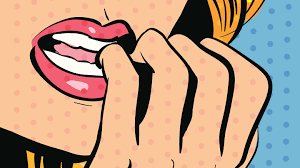 If you are one of the rare individuals who suffer with the noise syndrome known as misophonia, you are probably aware of the torment that patients go through in their daily life. Any small sound could trigger a big reaction. This syndrome can lead to significant anxiety, consistent overwhelming emotions and feelings, and even depression and suicidal thoughts. No matter how severe or mild your symptoms are, misophonia is a strongly displeasing issue to deal with every day. Living your life in fear of sound and in constant panic is no way to spend your time. If you’re new to misophonia and are wondering if your syndrome is directly connected to the development of anxiety, or vice versa, we can help you understand the nitty and gritty of the illness. The better you understand misophonia as a whole, the more you can improve your daily life and future.
If you are one of the rare individuals who suffer with the noise syndrome known as misophonia, you are probably aware of the torment that patients go through in their daily life. Any small sound could trigger a big reaction. This syndrome can lead to significant anxiety, consistent overwhelming emotions and feelings, and even depression and suicidal thoughts. No matter how severe or mild your symptoms are, misophonia is a strongly displeasing issue to deal with every day. Living your life in fear of sound and in constant panic is no way to spend your time. If you’re new to misophonia and are wondering if your syndrome is directly connected to the development of anxiety, or vice versa, we can help you understand the nitty and gritty of the illness. The better you understand misophonia as a whole, the more you can improve your daily life and future.
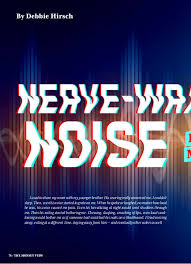 The syndrome of misophonia strictly relates to the irritation and negative reactions that come after hearing or experiencing a certain noise, which we call a trigger. These sounds can be different for all individuals and usually depend on the way you were raised or what you have been classically conditioned to dislike. This means people who are affected by misophonia are likely not born with the syndrome. Because of this, it is harder to identify or pinpoint specific events that may have led to the cause of your misophonia. Undergoing therapeutic courses of treatment may help alleviate symptoms and possibly find the reason for your irritations or phobias. Dealing with misophonia is a very difficult process that should be addressed as soon as symptoms are apparent for the best results.
The syndrome of misophonia strictly relates to the irritation and negative reactions that come after hearing or experiencing a certain noise, which we call a trigger. These sounds can be different for all individuals and usually depend on the way you were raised or what you have been classically conditioned to dislike. This means people who are affected by misophonia are likely not born with the syndrome. Because of this, it is harder to identify or pinpoint specific events that may have led to the cause of your misophonia. Undergoing therapeutic courses of treatment may help alleviate symptoms and possibly find the reason for your irritations or phobias. Dealing with misophonia is a very difficult process that should be addressed as soon as symptoms are apparent for the best results.
Anxiety is defined as a disorder characterized by fears or irritants that negatively affect how a person can regularly go about their day. Most of the time, anxiety is a normal and healthy emotion, as it regulates the body’s alertness. However, some people may have more advanced stages of anxiety that cause symptoms to appear consistently throughout the day. Anxiety is a very common disorder in the world, there being over 3 million cases in the United States alone. Anxiety is a difficult illness to deal with and may be related to symptoms of misophonia.
 After studies were completed examining patients who show signs of both anxiety and misophonia, psychologists and medical providers have determined they are two separate disorders with separate triggers and symptoms. Regardless of them being different conditions, this doesn’t mean they can’t go hand in hand with another. Similar studies depicted that misophonia can lead to anxiety. Because misophonia may trigger heightened sensory states and lead to panic, it can be identified that anxiety can be a symptom of misophonia, but it is unlikely the opposite. Misophonia begins with external stimuli, while anxiety typically occurs internally. If you have misophonia and are being treated like you have anxiety, there may be better solutions to your daily suffering.
After studies were completed examining patients who show signs of both anxiety and misophonia, psychologists and medical providers have determined they are two separate disorders with separate triggers and symptoms. Regardless of them being different conditions, this doesn’t mean they can’t go hand in hand with another. Similar studies depicted that misophonia can lead to anxiety. Because misophonia may trigger heightened sensory states and lead to panic, it can be identified that anxiety can be a symptom of misophonia, but it is unlikely the opposite. Misophonia begins with external stimuli, while anxiety typically occurs internally. If you have misophonia and are being treated like you have anxiety, there may be better solutions to your daily suffering.
In order to feel as good as you possibly can in life, it is important to visit a doctor or misophonia specialist to discuss symptoms and potential treatment options. Steven Katz LCSW is one of the best misophonia treaters in New York City and can significantly improve your symptoms.
Contact the Misophonia Cognitive Center to set up an appointment and start managing your Misophonia today.
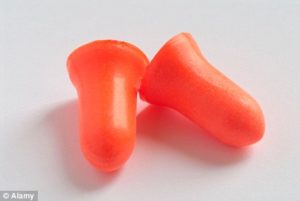 Suffering from any type of medical condition can be frustrating and hard to manage. For a condition like Misophonia, which is not fully understood nor easy to treat, it can be even harder to overcome this condition. Misophonia is a condition in which people dislike or even hate a specific sound. When they hear that sound, it causes a negative, and sometimes very bad, reaction. When this occurs, individuals need help and treatment. But, what type of treatment is best for it?
Suffering from any type of medical condition can be frustrating and hard to manage. For a condition like Misophonia, which is not fully understood nor easy to treat, it can be even harder to overcome this condition. Misophonia is a condition in which people dislike or even hate a specific sound. When they hear that sound, it causes a negative, and sometimes very bad, reaction. When this occurs, individuals need help and treatment. But, what type of treatment is best for it?
 It is not a good idea to label Misophonia as anxiety for several reasons. First, this condition can produce anxiety in individuals when the trigger sound is heard. In short, the sound creates the anxiety in these individuals. On the other hand, some people who have anxiety at severe levels may develop Misophonia whenever they have an anxiety episode or attack. In other words, it can be caused by or the result of anxiety. However, it is not specifically anxiety because people can have many types of reactions that stem beyond just what traditional anxiety is. That’s important for people to understand when seeking out care for this condition.
It is not a good idea to label Misophonia as anxiety for several reasons. First, this condition can produce anxiety in individuals when the trigger sound is heard. In short, the sound creates the anxiety in these individuals. On the other hand, some people who have anxiety at severe levels may develop Misophonia whenever they have an anxiety episode or attack. In other words, it can be caused by or the result of anxiety. However, it is not specifically anxiety because people can have many types of reactions that stem beyond just what traditional anxiety is. That’s important for people to understand when seeking out care for this condition.
Because it is so hard to understand, doctors often can question the underlying cause and the symptoms significantly. Could Misophonia be a neurological problem, one in which the brain and central nervous system do not communicate properly? Could this condition be a psychiatric one, where it is just the perception of the sound that causes the flare up? And, in still other cases, it may be possible to label this condition as an auditory disorder in which the pathways or functionality of the ear is what is causing the resulting reaction.
Doctors do not fully understand this condition and there is no cure for it. However, as many as 80 percent of the people who seek out treatment for Misophonia will see some marked level of improvement in their symptoms according to some research. It is for this reason that individuals with this condition should always get treatment.
 When you work with the best LCSW-R in New York City, you get the level of help and support you need to overcome this condition and to get back to living the quality of life you had. Seek out care that’s right for you.
When you work with the best LCSW-R in New York City, you get the level of help and support you need to overcome this condition and to get back to living the quality of life you had. Seek out care that’s right for you.